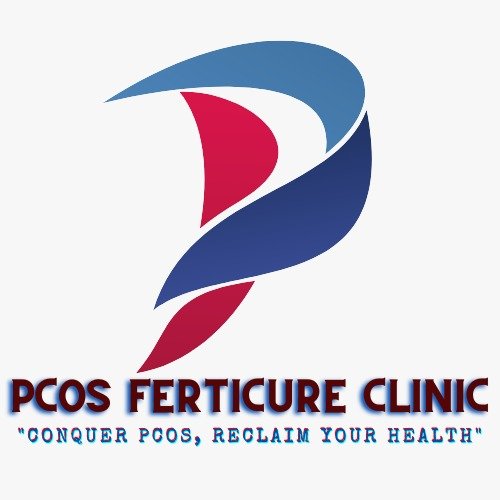PCOS can make weight loss a challenging journey, but with the right approach and determination....
Read more1. Unpacking PCOS: Navigating the Complex Terrain
Definition of PCOS: A Comprehensive Overview
- Polycystic Ovary Syndrome (PCOS) is a common hormonal disorder that affects individuals with ovaries. It is characterized by various symptoms, including irregular menstrual cycles, elevated androgen levels, and small cysts on the ovaries.
- PCOS is a complex condition with a range of manifestations, and its exact cause is still not fully understood. However, it is believed to involve a combination of genetic, hormonal, and lifestyle factors.
The Multifaceted Spectrum of PCOS Symptoms
- PCOS presents a diverse array of symptoms that can vary in severity among individuals. Common symptoms include irregular or absent periods, hirsutism (excess hair growth), acne, and scalp hair thinning.
- In addition to reproductive symptoms, PCOS can impact various body systems, leading to metabolic issues such as insulin resistance, weight gain, and an increased risk of type 2 diabetes and cardiovascular problems.
Diagnosing PCOS: Deciphering the Diagnostic Criteria
- Diagnosing PCOS requires a comprehensive evaluation by a healthcare provider. The diagnosis is typically based on a combination of medical history, physical examination, and specific criteria.
- One of the commonly used diagnostic criteria is the Rotterdam criteria, which require the presence of at least two out of three key features: irregular periods, elevated androgens, and ovarian cysts detected via ultrasound.
A Typology of PCOS: Understanding Phenotypes
- PCOS is not a one-size-fits-all condition, and it can be further categorized into different phenotypes. These phenotypes help tailor treatment approaches and address specific symptoms.
- The main PCOS phenotypes include the classic phenotype, characterized by irregular periods and elevated androgens; the ovulatory phenotype, with irregular periods but normal androgens; and the non-hyperandrogenic phenotype, featuring elevated androgens but regular periods.
2. PCOS and Infertility: Understanding the Connection

Impact of PCOS on Fertility
- Polycystic Ovary Syndrome (PCOS) can significantly impact fertility. One of the primary reasons is anovulation, which is the absence of regular ovulation. Without ovulation, the release of eggs necessary for conception doesn't occur.
- Irregular menstrual cycles, a common symptom of PCOS, further complicate fertility as they make it challenging to predict the most fertile times for conception.
The Role of Hormonal Imbalances
- Hormonal imbalances in PCOS, such as elevated androgen levels and insulin resistance, can disrupt the delicate hormonal interplay necessary for successful conception.
- Androgens, often referred to as male hormones, can interfere with the development of ovarian follicles and the maturation of eggs. Additionally, insulin resistance can lead to higher insulin levels, which can contribute to irregular ovulation.
Diagnosing PCOS-Related Infertility
- For individuals with PCOS who are struggling with infertility, a thorough evaluation by a healthcare provider is essential. The diagnosis of PCOS-related infertility typically involves assessing hormonal imbalances, ovulatory dysfunction, and other potential contributing factors.
- Diagnostic tests may include hormonal blood tests, ultrasound to examine the ovaries, and evaluation of menstrual patterns.
Fertility Treatments for PCOS
- Fortunately, many individuals with PCOS-related infertility can achieve successful pregnancies with the help of fertility treatments. Common interventions include ovulation-inducing medications such as clomiphene citrate or letrozole.
- In more complex cases, assisted reproductive technologies like in vitro fertilization (IVF) may be recommended. Lifestyle modifications, such as weight management and improved insulin sensitivity, can also enhance fertility outcomes.
3. Understanding PCOS-Related Hormonal Imbalances

Hormonal Imbalances in PCOS:
- Polycystic Ovary Syndrome (PCOS) is characterized by hormonal imbalances, primarily involving elevated levels of androgens, which are often referred to as "male hormones." These androgens can disrupt the normal functioning of the ovaries.
- The most common androgens associated with PCOS include testosterone and dehydroepiandrosterone sulfate (DHEAS). Elevated androgens can lead to symptoms such as hirsutism (excess hair growth), acne, and irregular menstrual cycles.
Insulin Resistance and PCOS:
- Insulin resistance is another prevalent feature of PCOS. It occurs when the body's cells do not respond effectively to insulin, a hormone responsible for regulating blood sugar levels.
- In individuals with PCOS, insulin resistance can lead to higher insulin levels in the bloodstream. Elevated insulin levels trigger the ovaries to produce more androgens, exacerbating hormonal imbalances and contributing to the symptoms of PCOS.
Impact on the Menstrual Cycle:
- PCOS-related hormonal imbalances can disrupt the regular menstrual cycle. Many individuals with PCOS experience irregular or absent periods, which can affect fertility and overall reproductive health.
- The absence of ovulation in anovulatory cycles is a common consequence of hormonal imbalances. This can lead to difficulty in conceiving for those trying to get pregnant.
4. The Impact of PCOS on Reproductive Health

Irregular Menstrual Cycles and Anovulation:
- Polycystic Ovary Syndrome (PCOS) often manifests with irregular menstrual cycles, a common symptom among individuals with the condition. These cycles can vary in length and may be absent for extended periods.
- Anovulation, the absence of regular ovulation, is a key feature of PCOS-related menstrual irregularities. This can lead to difficulties in conceiving for those trying to become pregnant.
Ovarian Cysts and Their Impact:
- The presence of small fluid-filled sacs or cysts on the ovaries is a characteristic feature of PCOS. While these cysts are generally harmless, they can contribute to hormonal imbalances and menstrual irregularities.
- In some cases, ovarian cysts can cause pelvic pain or discomfort. However, they do not typically require surgical intervention and may resolve on their own.
Hyperandrogenism and Its Effects:
- Elevated levels of androgens, such as testosterone, in individuals with PCOS can lead to hirsutism, which is the excessive growth of body hair, particularly in areas where men typically grow hair.
- Hyperandrogenism can also contribute to acne and male-pattern baldness or thinning of scalp hair in individuals with PCOS.
Fertility Challenges and PCOS:
- PCOS is a leading cause of female infertility. Anovulation, hormonal imbalances, and irregular menstrual cycles can make it difficult for individuals with PCOS to conceive naturally.
- Fortunately, many fertility treatments are available to help individuals with PCOS achieve their desired pregnancies. These treatments may include ovulation-inducing medications and assisted reproductive technologies.
5. Managing PCOS: Strategies for a Healthier Life

Lifestyle Changes for PCOS Management:
- Adopting a healthy lifestyle is crucial for managing Polycystic Ovary Syndrome (PCOS). Lifestyle changes include maintaining a balanced diet, engaging in regular physical activity, and managing stress effectively.
- Weight management is especially important, as losing excess weight can improve insulin sensitivity, regulate menstrual cycles, and reduce the severity of PCOS symptoms.
Diet and Nutrition:
- A well-balanced diet can play a significant role in PCOS management. Focus on consuming whole foods, lean proteins, fiber-rich fruits and vegetables, and complex carbohydrates.
- Limit the intake of processed foods, sugary beverages, and foods high in refined sugars, as they can exacerbate insulin resistance and weight gain in individuals with PCOS.
Exercise and Physical Activity:
- Regular physical activity is essential for PCOS management. Engaging in aerobic exercises, strength training, or other forms of physical activity can help improve insulin sensitivity, support weight loss, and enhance overall well-being.
- Aim for at least 150 minutes of moderate-intensity exercise per week, as recommended by health guidelines, to experience the benefits of an active lifestyle.
Stress Management Techniques:
- Stress can exacerbate PCOS symptoms and disrupt hormonal balance. Practicing stress management techniques such as mindfulness meditation, yoga, deep breathing exercises, and relaxation strategies can be beneficial.
- Getting adequate sleep and maintaining a regular sleep schedule also contribute to stress reduction and overall health.
Medications and Hormone Therapy:
- In some cases, healthcare providers may prescribe medications to manage specific PCOS symptoms. These may include hormonal contraceptives to regulate menstrual cycles, anti-androgen medications to address hirsutism and acne, and insulin-sensitizing drugs to improve insulin resistance.
- The choice of medication depends on individual symptoms and treatment goals.
Psychological Support and Counseling:
- Living with PCOS can be emotionally challenging. Seek psychological support and counseling if needed. Professional counseling can help individuals cope with the emotional aspects of PCOS and provide strategies for managing stress and anxiety.
- Joining support groups or online communities can also offer a sense of community and shared experiences.
Alternative Therapies:
- Some individuals with PCOS explore alternative therapies like acupuncture, herbal supplements, or dietary modifications. While these approaches may offer benefits for symptom management, it's essential to consult with a healthcare provider before trying them.
- Discuss any alternative therapies with your healthcare team to ensure they align with your overall treatment plan.
6. Dietary Strategies for Balancing Mood

Foods to Include:
- A well-balanced diet plays a significant role in managing mood swings associated with Polycystic Ovary Syndrome (PCOS). Include mood-boosting foods rich in essential nutrients:
- Omega-3 fatty acids, found in fatty fish like salmon and flaxseeds, can help stabilize mood. Incorporate these sources into your diet regularly.
- Fruits and vegetables provide a wide range of vitamins and minerals that support emotional well-being. Opt for colorful produce to ensure a variety of nutrients.
- Whole grains, such as oats and quinoa, release energy slowly, helping maintain stable blood sugar levels and preventing mood swings.
Foods to Avoid:
- To manage mood swings, it's essential to limit or avoid certain foods and beverages:
- Highly processed and sugary foods can lead to rapid spikes and crashes in blood sugar levels, exacerbating mood swings. Minimize your intake of sugary snacks and beverages.
- Caffeine and alcohol can disrupt sleep patterns and contribute to anxiety and irritability. Moderation is key when consuming these substances.
- Reduce the consumption of foods high in trans fats and saturated fats, which may negatively impact mood and overall health.
Meal Planning Tips:
- Effective meal planning can help maintain stable energy levels and mood:
- Opt for regular, balanced meals and snacks throughout the day to prevent extreme hunger, which can trigger mood swings.
- Combine complex carbohydrates, lean proteins, and healthy fats in each meal to support steady blood sugar levels and sustained energy.
- Stay hydrated by drinking plenty of water. Dehydration can exacerbate mood changes and fatigue.
7. Exercise and Its Impact on Mood
Importance of Regular Physical Activity:
- Regular physical activity is a crucial component of managing mood swings associated with Polycystic Ovary Syndrome (PCOS). Exercise offers various benefits for emotional well-being:
- Physical activity stimulates the release of endorphins, which are natural mood lifters. Engaging in regular exercise can help reduce stress, anxiety, and symptoms of depression.
- Exercise supports healthy sleep patterns, aiding in better rest and improved mood regulation.
- It also contributes to weight management, which can have a positive impact on overall health and self-esteem.
Mood-Boosting Workouts:
- Certain types of workouts are particularly effective in enhancing mood:
- Aerobic exercises like brisk walking, jogging, cycling, and dancing are known to elevate mood and reduce feelings of stress and anxiety.
- Mind-body practices such as yoga and tai chi combine physical movement with mindfulness, promoting relaxation and emotional balance.
- Strength training exercises not only improve physical strength but can also boost confidence and body image, positively impacting mood.
Creating a Sustainable Exercise Routine:
- To reap the mood-enhancing benefits of exercise, consider the following tips:
- Choose activities you enjoy to increase motivation and adherence to your exercise routine.
- Start slowly and gradually increase the intensity and duration of your workouts to prevent burnout or injury.
- Set realistic goals and track your progress to stay motivated. Share your fitness journey with a friend or workout partner for added encouragement.
- Remember that consistency is key. Aim for at least 150 minutes of moderate-intensity aerobic exercise per week, as recommended by health guidelines.
8. Stress Management Techniques
Mindfulness Meditation:
- Mindfulness meditation is a powerful tool for managing stress associated with Polycystic Ovary Syndrome (PCOS). This practice involves focusing your attention on the present moment without judgment.
- Regular mindfulness meditation sessions can help reduce anxiety, improve emotional regulation, and enhance overall well-being.
- You can start with short daily sessions and gradually extend the duration as you become more comfortable with the practice.
Yoga and Relaxation:
- Yoga combines physical postures, breathing exercises, and meditation to promote relaxation and reduce stress. It can also improve flexibility and strength.
- Regular yoga practice can help alleviate PCOS-related mood swings, anxiety, and tension. Consider attending yoga classes or following online tutorials to get started.
Breathing Exercises:
- Simple breathing exercises can be performed anywhere and anytime to manage stress:
- Practice deep breathing by inhaling slowly through your nose, holding your breath for a few seconds, and exhaling through your mouth. Repeat several times to induce relaxation.
- Another effective technique is the 4-7-8 breathing method, which involves inhaling for a count of 4, holding for 7, and exhaling for 8.
Incorporating these stress management techniques into your daily routine can help reduce the impact of stress on your physical and emotional well-being, making it easier to manage PCOS symptoms.
9. Seeking Professional Help
When to Consult a Healthcare Provider:
- It's essential to recognize when it's time to seek professional help for managing Polycystic Ovary Syndrome (PCOS) and its associated symptoms:
- If you experience severe or persistent mood swings, anxiety, depression, or other emotional challenges that significantly impact your daily life, consider consulting a healthcare provider.
- Irregular menstrual cycles, fertility concerns, or hormonal imbalances may also warrant medical attention.
- If you are struggling to manage your PCOS symptoms through lifestyle changes alone, a healthcare provider can help determine the most appropriate treatment options.
Therapy and Support Groups:
- Therapy and support groups can be valuable resources for individuals with PCOS:
- Psychotherapy, such as cognitive-behavioral therapy (CBT), can help you develop coping strategies, manage stress, and address mood-related challenges.
- Support groups, whether in-person or online, provide a sense of community and understanding. Sharing experiences with others facing similar issues can be emotionally uplifting.
- Consider discussing these options with your healthcare provider to determine which approach may be most beneficial for your needs.
Medications for Mood Stabilization:
- In some cases, healthcare providers may recommend medications to stabilize mood:
- Antidepressants or mood stabilizers may be prescribed to manage severe mood swings, anxiety, or depression associated with PCOS.
- Your healthcare provider will conduct a thorough evaluation to determine the most appropriate medication and dosage for your specific symptoms.
10. Support Systems
Building a Support Network:
- Creating a strong support network is essential for individuals managing Polycystic Ovary Syndrome (PCOS) and its associated challenges:
- Share your journey with trusted friends and family members who can offer emotional support and understanding.
- Consider joining local or online PCOS support groups where you can connect with others who share similar experiences and exchange valuable insights.
- Seek out healthcare providers who specialize in PCOS and can provide expert guidance and care.
The Role of Family and Friends:
- Family and friends can play a vital role in your journey to manage PCOS:
- Educate your loved ones about PCOS to foster understanding and empathy.
- Involve your partner or spouse in your treatment plan and decision-making process, as their support can be instrumental.
- Encourage open communication with your family and friends, allowing them to provide emotional support when needed.
Online Communities and Resources:
- The internet offers a wealth of online communities and resources for individuals with PCOS:
- Join online forums, social media groups, and PCOS-related websites to connect with a global community of individuals who understand your experiences.
- Access reliable information, articles, and resources to stay informed about PCOS management and treatment options.
- Remember to exercise caution and verify the credibility of online sources to ensure you receive accurate information.
Conclusion
In conclusion, managing Polycystic Ovary Syndrome (PCOS) and its associated symptoms, including mood swings and infertility, requires a multifaceted approach. By understanding the various facets of PCOS and implementing effective strategies, individuals can regain control over their health and well-being.
From lifestyle modifications such as maintaining a balanced diet, engaging in regular exercise, and practicing stress management techniques, to seeking professional help when necessary, individuals with PCOS have a range of options to address their unique needs.
For those seeking the best PCOS treatment in Delhi, it's essential to consult with experienced healthcare providers and specialists who can offer personalized care and evidence-based treatments tailored to your specific condition. Delhi provides access to a wide range of healthcare resources and experts dedicated to managing PCOS effectively.
Remember that managing PCOS is a journey, and with the right support network and resources, individuals can lead fulfilling lives and achieve improved physical and emotional well-being.





